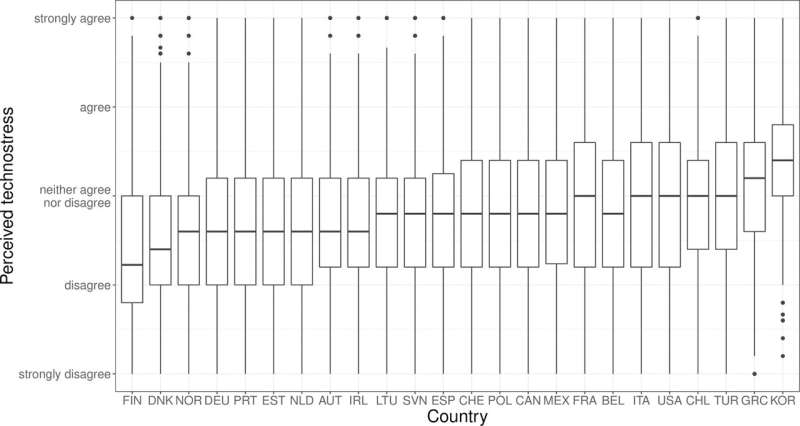This article has been reviewed according to Science X's editorial process and policies. Editors have highlighted the following attributes while ensuring the content's credibility:
fact-checked
peer-reviewed publication
trusted source
proofread
'Technostress' and the role of the welfare state

Technological change is currently driving fundamental changes to the world of work—with significant consequences for social inequality. Against this backdrop, the interdisciplinary research project "Digitalization, Automation and the Future of Work in Post-Industrial Welfare States" recently published research results on how technological change impacts health, e.g., causes technostress.
The research team applies this concept to how individuals deal with constantly changing information and communication technologies and the cognitive and social demands they face as a result.
The interdisciplinary team of researchers from the fields of organizational and management research, as well as political science, focuses on the extent to which socio-economic backgrounds and social systems in welfare states affect the relationship between technological change and health.
Their method links data on personal income, technostress, and unemployment benefit measures for almost 25,000 participants from 24 OECD countries. This makes studying how socio-political contexts influence an individual's psychological perceptions possible.
Ann Sophie Lauterbach, a doctoral researcher in the Cluster of Excellence, "The Politics of Inequality" at the University of Konstanz, explains, "By looking at unemployment benefits, for example, we conclude that these payments go in line with lower stress levels caused by technology. The more generous the social programs in a welfare state, the less technostress its residents are likely to experience."
The study explains this effect as reduced fear of being overburdened at work or potentially losing a job to a more qualified person or automation.
This underscores the importance of state support for those navigating today's world of work: Welfare states that provide generous support measures for the labor market can significantly reduce subjective perceptions of technostress. Lauterbach cautions, "The problem is that such measures can amplify inequalities between countries with respect to social and individual health."
People from northern and western European welfare states with high income levels might be better equipped psychologically to address the challenges of digitalization and technological change.
The work is published in the journal PLOS ONE.
More information: Ann S. Lauterbach et al, Can welfare states buffer technostress? Income and technostress in the context of various OECD countries, PLOS ONE (2023). DOI: 10.1371/journal.pone.0295229
Journal information: PLoS ONE
Provided by University of Konstanz




















